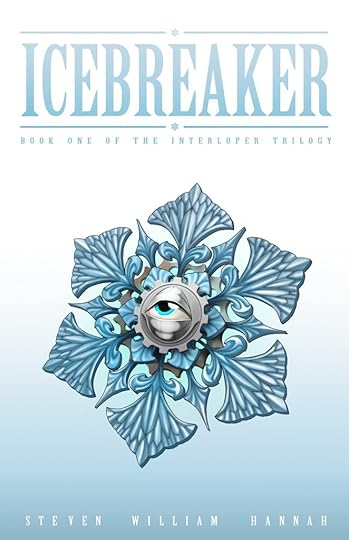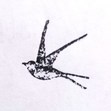Fear of the Unknown – Icebreaker
I don’t normally do much horror.
As I write this post, I realise that this isn’t actually that true. I don’t set out to do horror, whether that’s writing or reading, but while I don’t usually go for pure horror I do love darker fantasy and SF that veers into the terrifying and unsettling.
I was going to say ‘I don’t write horror’, but The Only Cure, while fantasy, is definitely an unsettling piece, and Generations is again an SF-horror fusion. Another story I’m hoping might get snagged soon is definitely fantastical horror, and one of the manuscripts on the great pile of Books That Need Redrafting definitely veers into very unsettling territory. So I don’t write ‘horror’ – but I do write the odd bit of scary stuff.
And again, ‘I don’t read horror’ is also not really true. Some of my favourite indie books I’ve read in the last few years have been absolutely brilliant horror-fusion pieces: A Song For The Void was brilliant historical horror, a combination I didn’t anticipate but that worked tremendously well; In Darkness Cast is dark as hell for all that it’s a fantasy tale. Even if you’re throwing noble heroes at them, horrible monsters are still horrible monsters and the best way to make them feel horrible is to dip your quill into the dark, dark inkwell of the horror writer, and really make them nasty.
But the book that made me really think about what makes horror good – or just writing that makes you unsettled and scared, or whatever you want to call it – was Icebreaker by Steven William Hannah. Because in this frozen post-apocalyptic wasteland, where humanity survives by the skin of its teeth, the way Hannah writes the monsters in the dark absolutely fascinated me. You have to get the monsters, the threat, whatever it is, right.

The way you write your characters being frightened has to resonate with your readers to be effective. I have written villains who I’ve tried to make unsettling. I’ve written monsters – some pretty nasty ones, I must admit – and tried to get that description just right. (The best, I think, was the alien serial killer I threw at my Kill-Team RPG players in an early session, because I got to see the looks on their faces when they realised what they were up against, and then they had to fight it.) But you can write about big pointy teeth and tentacles all you like without necessarily nailing that feeling of actual terror.
The monster – the Phenomenon – in Icebreaker is a thing that, if you look at it, or listen to it, and therefore know what it is in any way, drives you immediately insane. For the whole book, the protagonists are fighting against an evil that they cannot directly experience… and therefore an evil that Hannah cannot actually describe. The scenes where it appears are literally scenes of our protagonists donning blindfolds and earplugs, blocking out all sensation just in the hope they might survive. Even those who try to fight the Phenomenon have to do so blindly, spraying fire into the night and hoping they hit home. The entire culture of the world of Icebreaker is built around the fact that, every so often, every human being has to curl up in a ball and hope the nightmare doesn’t rip them limb from limb, and nobody has the faintest idea why.
And it works. Because Hannah writes that fear so well: he writes those claustrophobic scenes of blind, deaf characters, utterly helpless, so very realistically. You feel like you’re there with them, in the dark and silence. You, like main character Bear, desperately want to know more about the Phenomenon when he arises and see the marks it has left on the world around him. You understand those who tell Bear he’s an idiot and to leave the unknowable unknown.
It’s not like ‘horror beyond comprehension’ is new. It’s Lovecraft and all that classic eldritch stuff; ‘stare not into the abyss lest it stare into you’, etc. But the climax of the terror in those stories normally comes when the abyss is stared into, when the audience does get a glimpse of what lurks beyond the veil. To write an effective horror story without doing that is masterful. Hannah isn’t really writing about the horror itself – he’s writing fear, and doing it beautifully.
And yes, eventually we do learn a bit about the Phenomenon; yes, eventually we do see a little of what it is. But that never changes the impact of those scenes in the dark silence. It never makes them less frightening. The scraps of knowledge, the idea that you might actually know what’s out there, only makes it worse. To know nothing is scary – the possibility that you might know something, about the thing that drives you mad just by looking at it, is terrifying.
I have a new perspective on good horror writing now. It certainly makes me want to read more, which I am currently doing. It makes me want to write more, too. There are monsters lurking in the dark of my mind that I might just have to unleash.
Tis the season, after all.



